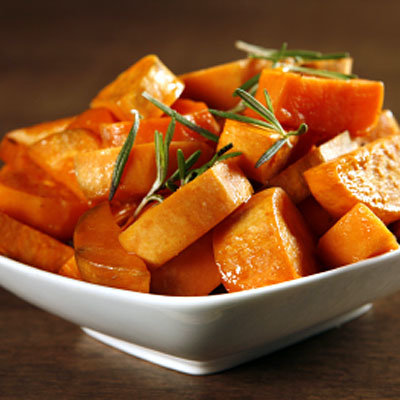Lose Weight > Weight Loss Tips > Weight Loss Articles > Get More Fruits And Vegetables In Your Diet With Juicing
Get More Fruits And Vegetables In Your Diet With Juicing
If you are diabetes or otherwise sensitive to sugar in your diet, be careful with juicing. Many fruit juices will be very high in sugar, resulting in a spike in your blood sugar levels, especially if you drink juice on an empty stomach. Try diluting your juices with water to reduce this issue.
Be consistent and do a little juicing everyday. The more you do, the more you'll want to juice and gradually, you'll make juicing a bigger part of your day. If you make juicing an infrequent occurrence, not only will you get less nutritional benefit but you'll also lose the will to keep going.
Begin by using color as a guide. A bright red apple, for instance, is going to have far different nutrients than a green stalk of broccoli. Incorporating a number of differently colored fruits and vegetables into your juices gives both a deeper flavor and a wider range of nutrients.
Ask your friends and family if they'd like to go in on purchases in bulk at local farms with you so you can buy more and get larger discounts. Apple farms, for example, will sell you bushel after bushel for decreasing costs per pound. Take a few cars up, load the back with apples, and share with everyone! They don't have to be juicers to enjoy fresh produce.
Some items just aren't made for the juicer, especially if they're soft and mushy. For example, you'll never be able to make a juice that is mostly banana, but you CAN put a half of a banana in a juice made with other firmer produce. Peaches tend to give the same result.
Making fresh juice to store in the refrigerator is a good idea, but you need to take steps to prevent the juice from changing colors. People are naturally going to assume that brown juice is bad. This situation is easily avoidable if you add a few teaspoons of lemon juice to your mixture, preferably fresh. The flavor will not be overwhelmed from the lemon and the juice will maintain that bright fresh look.
If you don't feel you're getting an adequate amount of a vitamin in your diet, don't bother buying a supplement! Instead, buy a juicer and do your research to find out which fruit and vegetable are rich in that vitamin. For example, if you're low in calcium you should juice dark green vegetables like kale.
Do not assault your taste buds with crazy blends right away. Take it slow with your flavor blends and stick to what you know you will like at first. Then begin to incorporate items that you do not normally consume as juice, such as spinach or other leafy vegetables. This will prevent you from ruining the pleasure of juicing because you got a bad taste in your mouth.
Try adding chopped ice to your juice to make it a cool treat in the summer! It's like drinking a smoothie while actually knowing what ingredients are in it and where they came from (and how clean they were when they went into the juicer!) What a tasty way to chill out.
When you juice for health it's important that you get the most our of your drink, so investing in a vacuum jar sealer can allow you to store some of your juice for later while retaining the nutrients that you're getting from the produce. Remember, it's better to drink it immediately, but if you can't, buy a vacuum sealer!
When it comes to juicing, one thing that you want to keep in mind, is that you need to prepare yourself mentally and financially, for investing a lot of money into a quality juicer. This is important to consider and save for because quality juicers can cost upwards of $1500.
In conclusion, you want to make sure that, in terms of juicing, you are putting out a quality product, no matter who it is that will be consuming it. The intention of this article was to provide you with proven information that will help you to make the most out of your juicing experience.
Related Articles
-
5 Tips to Stay Fit While Traveling
By D
-
Healthy Eating with Tasty Foods and Still Lose Weight
It seems as if people do not eat healthy foods because they feel it wi
-
Heading Off Winter Weight Gain Before it Gets Started
Must We Gain Weight Every WinterIts that time of yea
-
Flat Tummy In 10 Days - Burning Off Belly Fat Is So Easy When You Figure Out What Mistakes You've Made
Click Here Now to Watch Your FREE Video Presentation & Discover Ho
-
Weight Loss Foods ?Top 4 Picks
Can Weight Loss Foods really make you lose weight? Yes, but
-
Stomach Firming Exercises
Are you troubled with the flab in your belly? Do you want to be th
- DON'T MISS
- How to Reduce Belly Fat - Simple Tips And Tricks
- Small Coups for Satiety at Dinner Accelerate Your Weight Loss
- How To Lose Weight Faster
- Understanding How Hard It Is To Find Successful Diet Plans
- Diet Foods Eat
- Top 10 weight loss secrets
- 3 Guilt Free Fat Burning Food After Dinner Snacks
- Every Other Day Diet Free Download
- WEIGHT LOSS PRODUCTS – ARE THEY TRAPS?
- Losing Weight Fast Tricks - Tricks For Losing Weight Fast




